are coffee grounds bad for tomato plants
Even spent coffee isnt safe from caffeination with one study showing spent coffee grounds. Are coffee grounds good for tomato plants.

How To Fertilize Tomato Plants With Coffee Grounds
Whats bad for plants.

. Fresh coffee grounds are acidic. Why are coffee grounds bad for tomato plants. Mixing coffee grounds with wood ash shredded leaves and lime creates a rich compost one high in nitrogen thats easy for tomatoes to access.
If overused coffee grounds may also mess with the pH of the soil making it too acidic. Dont over-mulch with fresh coffee grounds. Caffeine occurs in some plants where its role is to attack and kill competing flowers.
First by adding too much coffee grounds you could mess the pH of the soil up for your tomatoes. Dont add fresh grounds around tomatoes. Coffee grounds are an excellent source of nitrogen for composting.
Too much nitrogen will result in plentiful thick leaves and stems but a lack of fruit production. However there has to be some caution as used coffee grounds have a pH of around 68. Coffee contains about 2 nitrogen and trace amounts of phosphorus and potassium.
You could burry your tomatoe plants in 100 pure coffee grounds and they wouldnt know the difference. Remember that all plants do not grow well in acidic soils and too much caffeine may increase the risk of fungal diseases as well. Leftover diluted coffee works well like this too.
One or two slugs may turn away. Used coffee grounds are neutral. Coffee grounds can be an amazing fertilizer mulch or compost for your plants and you can even water your plants using coffee.
The simple answer is Yes. Mixing coffee grounds with wood ash shredded leaves and lime creates a rich compost one high in nitrogen thats easy for tomatoes to access. Since coffee grounds are high in nitrogen tomato plants may receive too much nitrogen if the soil is not well balanced.
Youll want to avoid using coffee grounds on plants like tomatoes clovers and alfalfa4 days ago. Fluorides in gaseous and particulate form are more toxic to sensitive plants than sulfur dioxide because they build up in the leaves. However there is a limit to the quantity of coffee that can be used.
However this seems to be linked to using thick blankets of it. Still want to put those coffee grounds on your prize tomatoes. Since coffee grounds are an organic material these nutrients have to be broken down in order to be accessible to plants.
As a result coffee will add nutrients for tomato plants but not quickly. Dont use coffee grounds to manage heavy pest infestations. If you put your plants in total coffee grounds.
Adding more than 20 ground coffee grounds to your mulch especially fresh coffee will actively prevent plant growth and can even kill the plant altogether. These are all acid-loving plants that grow best in acidic soil. The bacteria in your soil has to slowly decompose the grounds first providing a slow.
Why are coffee grounds bad for tomato plants. Many gardeners have success with used coffee grounds in the garden and most often used on acid-loving plants like azaleas rhododendrons blueberries and of course tomatoes. If you are only using coffee grounds as fertilizer it may also mean.
Coffee grounds are about 2 percent nitrogen by volume nitrogen being an important component for growing plants. The ph could be no different than 68. A good rule of thumb is half a pound of used coffee grounds to 2 gallons of water per rose.
Mixing coffee grounds with wood ash shredded leaves and lime creates a rich compost one high in nitrogen thats easy for tomatoes to access. How often should you put coffee grounds on roses. You can put too much coffee ground in your tomatoes soil.
Adding too much coffee grounds around your plants may suffocate their roots. Using free coffee grounds seems like the perfect solution but some gardeners have found that using coffee grounds directly on the soil has had a disastrous effect on plants. Are coffee grounds bad for tomato plants.
Tomatoes favor slightly acidic soil yet not soil that is too acidic. Using grounds to make compost is also a way of lessening their acidity because in their raw untreated form coffee grounds may make the soil too acidic for plants to thrive. Its been demonstrated in a number of studies that caffeine suppresses plant growth.
The plants that like coffee grounds include roses blueberries azaleas carrots radishes rhododendrons hydrangeas cabbage lilies and hollies. Too much coffee grounds can affect your tomatoes in two ways. Coffee grounds added to compost and used in the garden as organic fertilizer give your tomato Solanum lycopersicum plants a boost attract earthworms and may deter both slugs and insect pests in the garden.
Coffee grounds are less likely to be harmful to mature plants compared to seedlings but it is still worth considering if you dont want to risk the health of a plant you are particularly fond of. Coffee grounds have a ph of around 68. The use of fresh coffee grounds are thought to suppress weeds too having some allelopathic properties of which adversely affects tomato plants.
Antibacterial Properties can Destroy Good Bacteria in Soil. Using grounds to make compost is also a way of lessening their acidity because in their raw untreated form coffee grounds may make the soil too acidic for plants to thrive. Theyre acid-loving plants but dont do well exposed to the highly acidic grounds.
The main toxic substances for plants are sulfur dioxide fluorine ozone and peroxyacetyl nitrate. You can fix this by testing your tomatoes soil before and after adding coffee grounds. Learn to use it.
If you rinse your used coffee grounds they will have a near neutral pH of 65 and will not affect the acid levels of the soil. Composting grounds introduces microorganisms that break down and release the nitrogen as it raises the temperature of the pile and aids in killing weed seeds and pathogens. Coffee grounds are highly acidic they note so they should be reserved for acid-loving plants like azaleas and blueberriesAnd if your soil is already high in nitrogen the extra boost from coffee grounds could stunt the growth of fruits and flowers.
More coffee grounds cant lower your ph below 68. To use coffee grounds as fertilizer work the coffee grounds into the soil around your plants. This is total crap.
Growing them in the ground and then using the coffee grounds to grow your crops is one of the easiest ways to get great results in a short amount of time. Keep coffee grounds to no more than 20 percent of the material included in your compost. But even coffee-ground gardening advocates include a few words of warning.
Using grounds to make compost is also a way of lessening their acidity because in their raw untreated form coffee grounds may make the soil too acidic for plants to. Caffeine reduces germination rates in many plants by tying up the nitrogen in the soil.

Used Coffee Grounds Crushed Dry Egg Shells No Blossom End Alternative Energy And Gardning Organic Gardening Tips Uses For Coffee Grounds Egg Shells

Are Coffee Grounds Good For Tomato Plants Couch To Homestead
How To Grow A Tomato Plant At Home With No Knowledge Of Garden Cores Quora

7 Uses For Coffee Grounds On Plants In The Garden

7 Uses For Coffee Grounds On Plants In The Garden
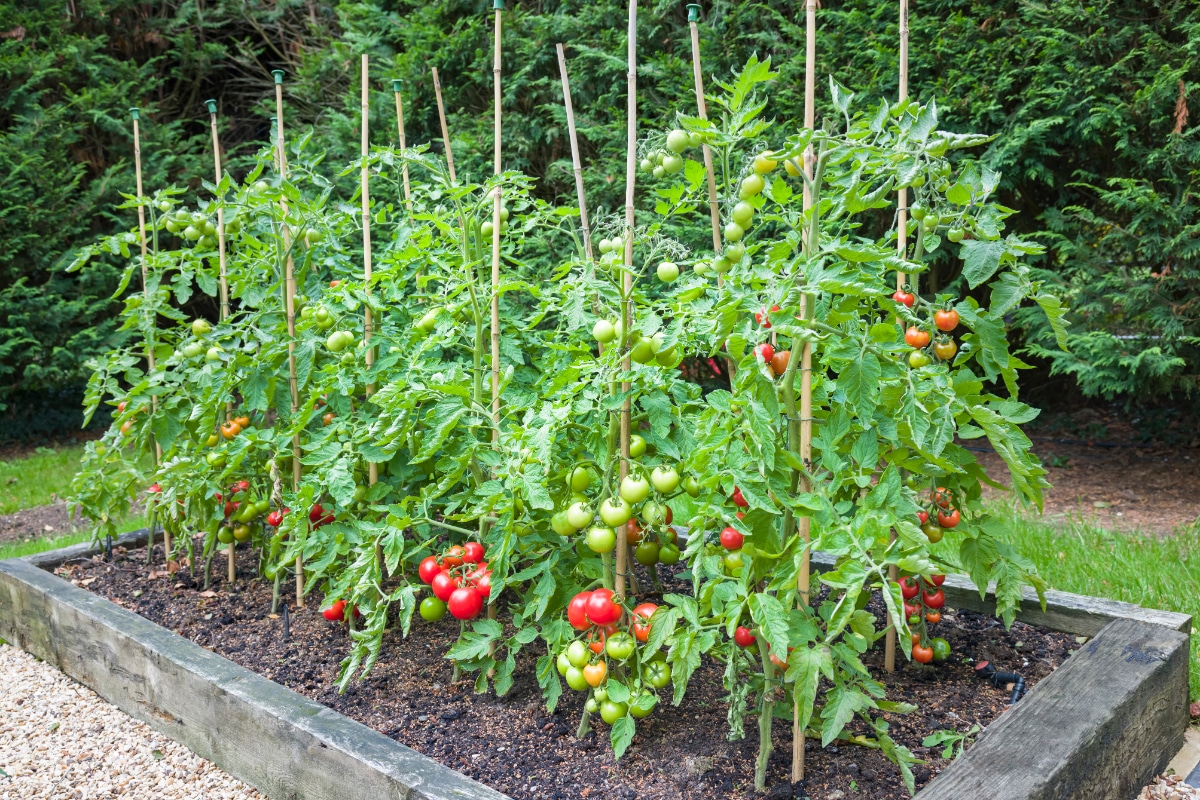
12 Tomato Growth Hacks For A High Yield Harvest Gardening
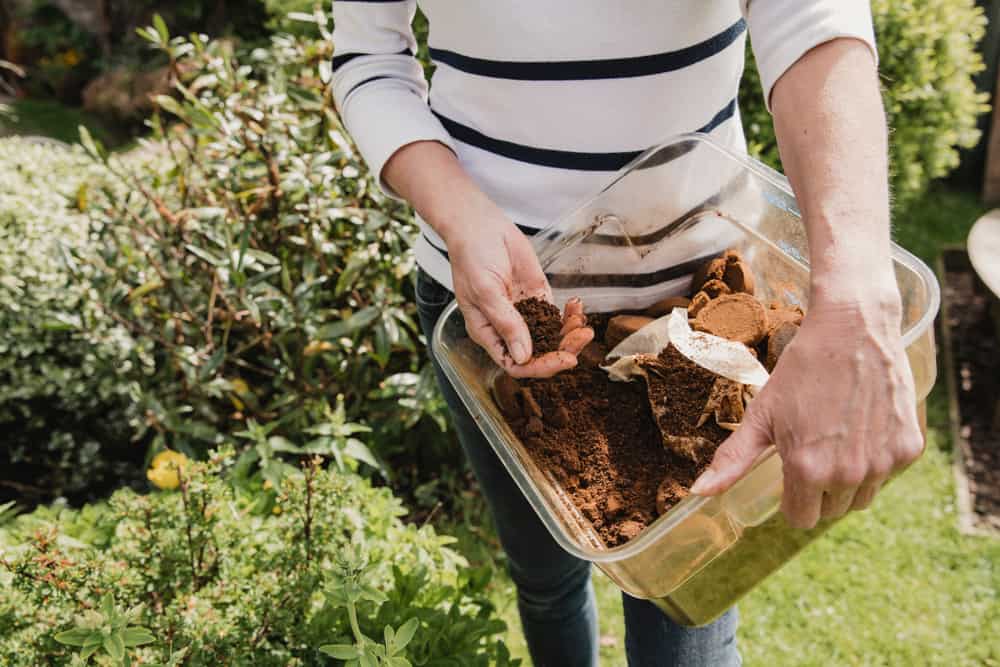
Are Coffee Grounds Good For Tomato Plants Err Probably Not Tomato Bible
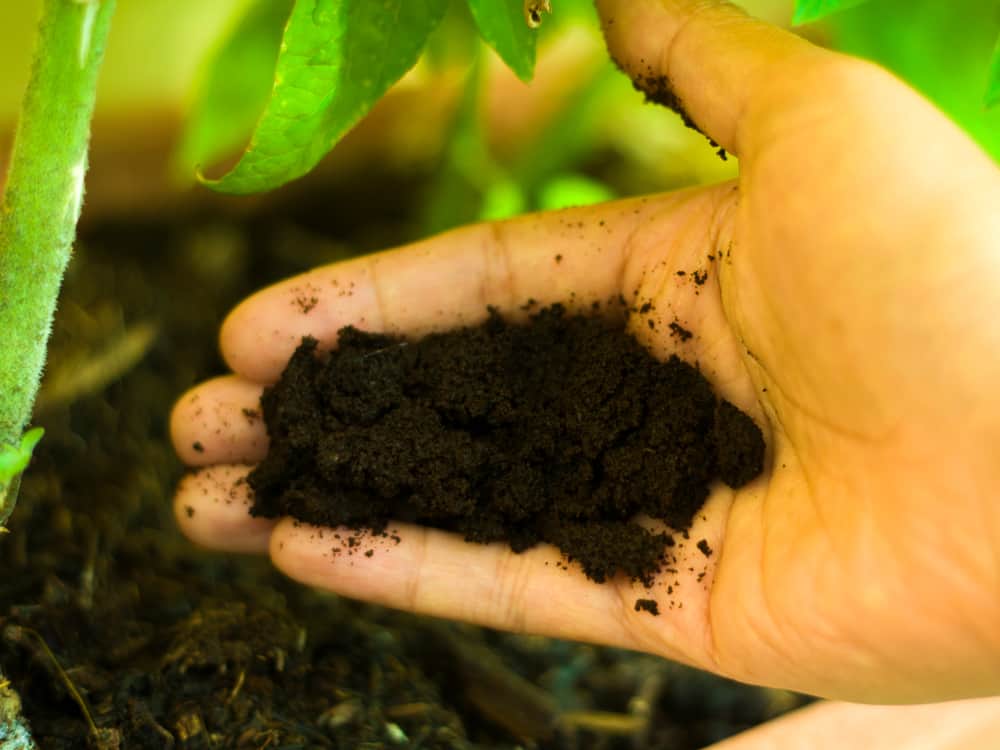
Are Coffee Grounds Good For Tomato Plants Err Probably Not Tomato Bible

11 Ways To Use Coffee Grounds In The Garden

Are Coffee Grounds Good For Tomato Plants Couch To Homestead
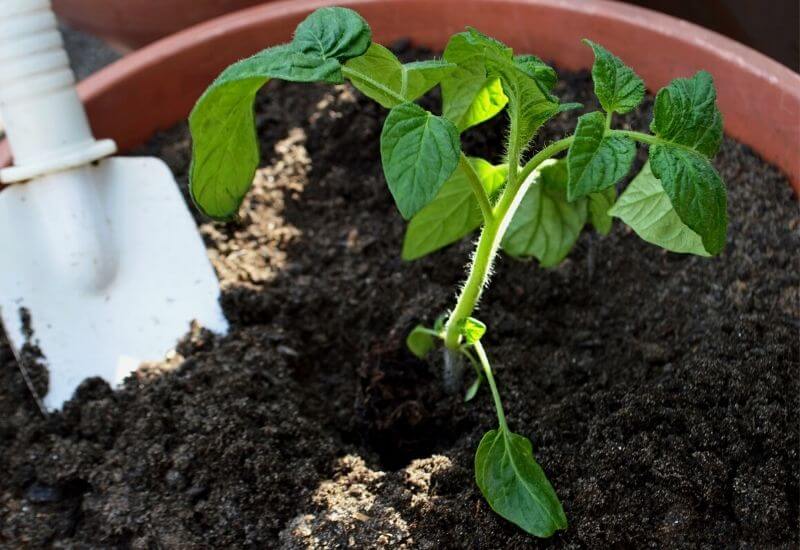
Fertilizing Tomatoes How And When To Fertilize Your Tomato Plants

Coffee Grounds For Your Garden Garden Myths

Pin On Sadovi Roboti Svoyimi Rukami
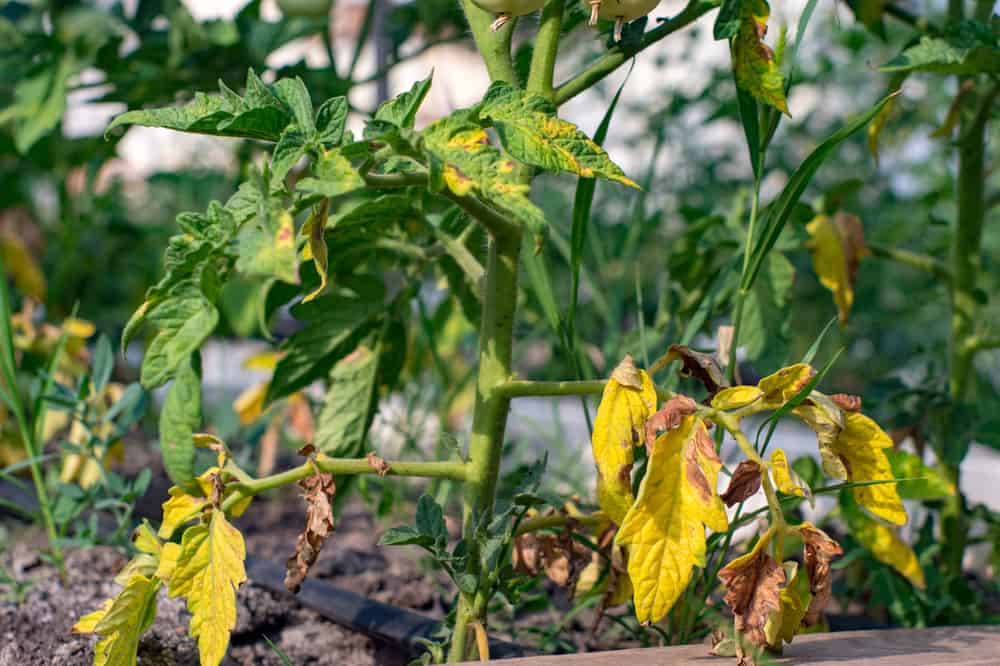
Are Coffee Grounds Good For Tomato Plants Err Probably Not Tomato Bible

10 Things To Add To Tomato Planting Hole For Better Tomatoes Growing Tomato Plants Gardening Tomato Plants Garden Plants Vegetable
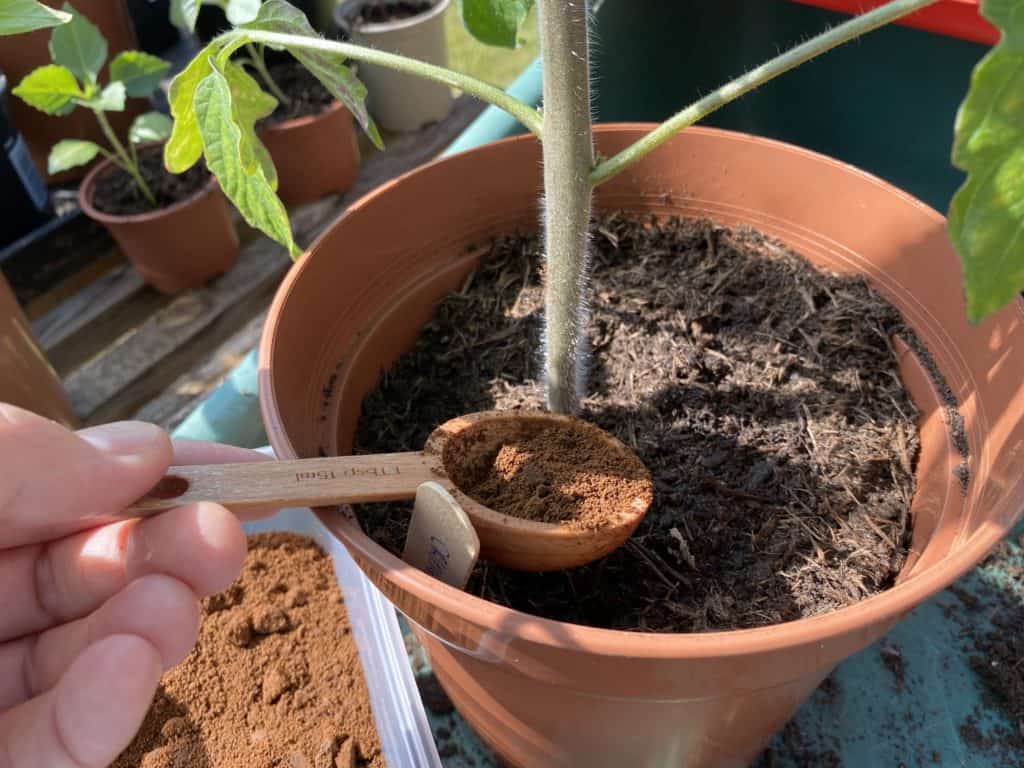
Are Coffee Grounds Good For Tomato Plants Err Probably Not Tomato Bible

11 Ways To Use Coffee Grounds In The Garden

Pin On Gardening And Back Yard

7 Fun Facts About Using Coffee Grounds In The Garden Crate And Basket